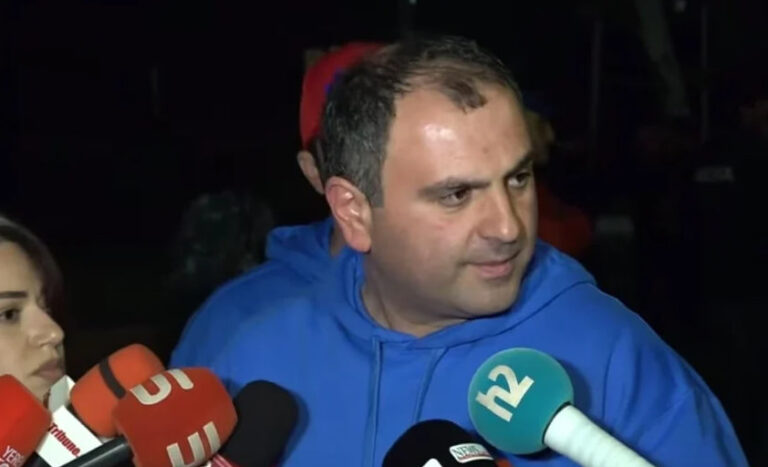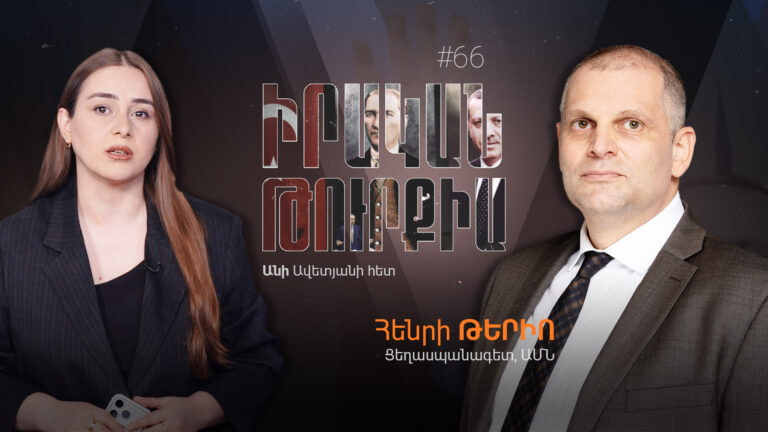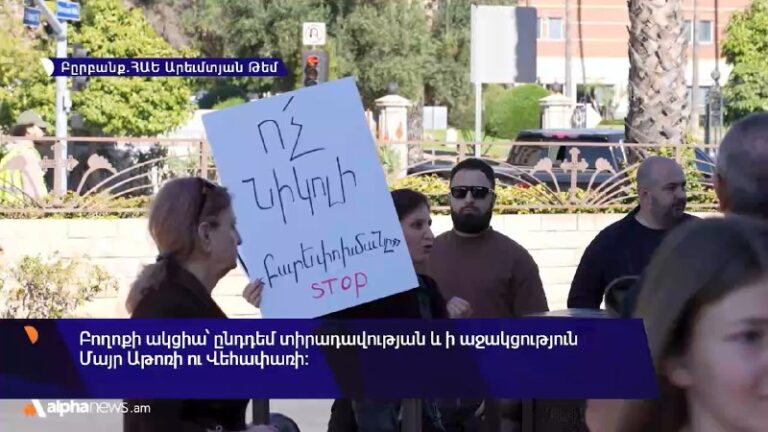‘Terrified, we ran to the basements and waited for death’: Artsakh exodus #26
November 17 2023, 13:10
Suddenly the air was filled with the smell of gunpowder. The explosions were so close that we all ran terrified to the basements and probably expected death. With each explosion, we anxiously looked at each other, and it seemed to everyone that this was the end. This is how honored teacher Angela Gabrielyan, forcibly displaced from Artsakh, recalls September 19 in a conversation with Alpha News.
After a day and a half of hiding in the basement, they finally heard the news of the long-awaited ceasefire, which, however, did not live up to their expectations.
“We expected that at least some agreement would be reached. We didn’t even think that we would have to leave Artsakh. Communications between the regions and Stepanakert were interrupted; people did not hear from their relatives, but then we found out that people from the border villages were evacuating to the town. People talked about the massacre and how some survivors managed to escape. Peacekeepers helped evacuate people from villages. But where could they be evacuated? After the 44-day war, little Stepanakert was already filled with residents of Hadrut and Shushi. There were talks about moving to Armenia. We did not think about displacement from Stepanakert, but a day or two after negotiations it was decided that we should be displaced from the town as well,” Angela says.
A woman from Stepanakert sorrowfully describes what she saw and heard in those days. She says they lived in chaos, gripped by panic and uncertainty.
“We were given not even days, but hours to get ready. Everything that we created over the years was placed in one suitcase. We left our history in the past and only took our memories,” says the 72-year-old woman.
Angela Gabrielyan is the daughter-in-law of children’s writer and poet Gurgen Gabrielyan. They left a great fortune in Artsakh, not only financially but also culturally. Angela talks with admiration about the legacy of her husband, the famous artist Samvel Gabrielyan, and her father-in-law, but at the same time regrets that she could not bring with her the cultural heritage that was left to humanity.
“In the village of Khandzk, there is a two-story house built by my father-in-law. He built it as an example for young people so that they would not leave the village. And in the town itself, we left two apartments and a workshop. One of the apartments belonged to my father-in-law, and over time it was supposed to become his house museum. His manuscripts, books and archives remained in this apartment. Everything was left there; we did not have time to take much. I put the most important things in a small bag and went to my husband’s studio. I took the smallest paintings that we could fit in the car and brought them with me. The largest paintings, created over the years, were left there,” Angela says ruefully.
The toughest challenge was leaving Artsakh. The Gabrielyans left Stepanakert on September 29; they were among the last to leave Artsakh.
“I didn’t want to leave. One day, my son said that I needed to gradually come to terms with this thought, but I couldn’t, I didn’t want to. Once, my son met Azerbaijanis in the town, and my daughter, who works in the presidential palace, said that the Azerbaijanis wanted to surround the building of the presidential palace and plant their flag on it. We then decided that we would set off the next morning. There were only us and the neighbors across the street. At dawn, our families left for Armenia,” says Angela.
Angela recalls the 35-hour trip with horror.
“At night, the father of my son’s friend got out of the car and, without noticing that he was on the edge of a cliff, rolled into the gorge. The next day, with the help of Russian peacekeepers, his remains were found. Another accident occurred when a 30-year-old woman left her children in the car and got out to get some fresh air, but a truck hit her, pinning her between two cars,” she says.
Angela cherishes the hope of returning to Artsakh; she is ready to return, but only if she does not live with the Azerbaijanis.
“It is impossible to feel safe with them. During the Soviet Union, the situation was different; back then, there was propaganda of friendship and solidarity. Of course, there was hostility, but not much. We adapted and continued to live, but now, having gone through all this, it is simply impossible to live side by side with them,” says Angela.








